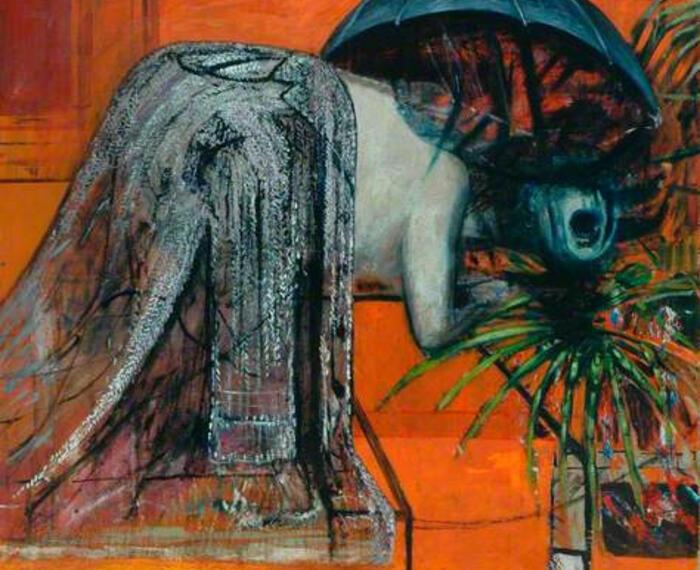


Mark Wallinger, ‘Threshold to the Kingdom’, 2000. Installation for video projection, audio 11 minutes 20 seconds. Video still, courtesy the artist and Hauser & Wirth. © Mark Wallinger
This film was online from 12.00, 1 April 2020 to 12.00, 4 April 2020
This week, Mark Wallinger has generously allowed the CAS to screen his evocative 2000 work Threshold to the Kingdom, which we donated to Leeds Art Gallery in the same year through our Special Collections Scheme. Film forms a significant part of Wallinger’s practice and this work can be seen in the context of the artist’s interest in religious themes and national identity. Originally commissioned by the British School in Rome for the millennium, it was shown at Tate Liverpool in 2000, the Whitechapel Gallery in 2001 and formed part of his British Pavilion exhibition at the Venice Biennale in 2001.
In negotiating the more or less authoritarian or coercive apparatus of the state which define and control one’s progress from ‘air-side’ to land-side’, one is perhaps reminded of a kind of secular equivalent of the progression from confession to absolution. Eventually, all that separates us from the no-man’s-land and the official terra firma of the state are a pair of automatic doors.
While earlier works such as Angel explored the rich symbolism available in negotiating our way around the city, this film plays with the symbolism that signals a change in state. The aura of security, the self-consciousness this induces and the little drama of the final gates opening are amplified and transformed by the soundtrack into an altered state or delivery into the Kingdom of Heaven itself.
Allegri’s Miserere, a setting of the fifty-first psalm, has been sung in the Sistine Chapel on Ash Wednesday for centuries and the music was a closely guarded secret until Mozart, visiting as a fourteen-year-old, made a notation from memory.